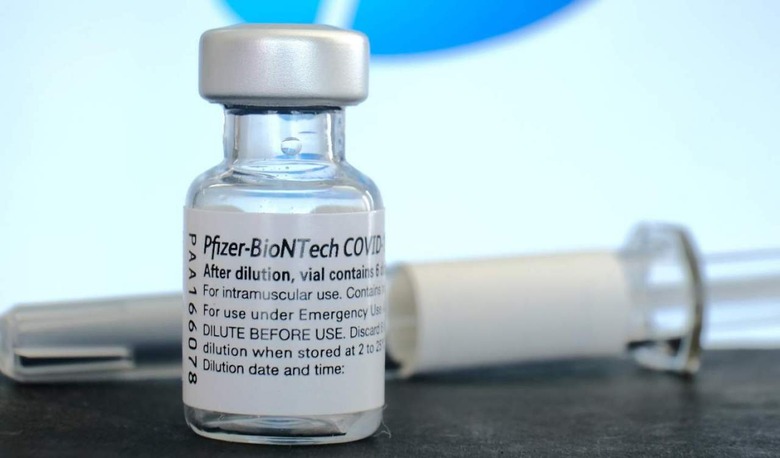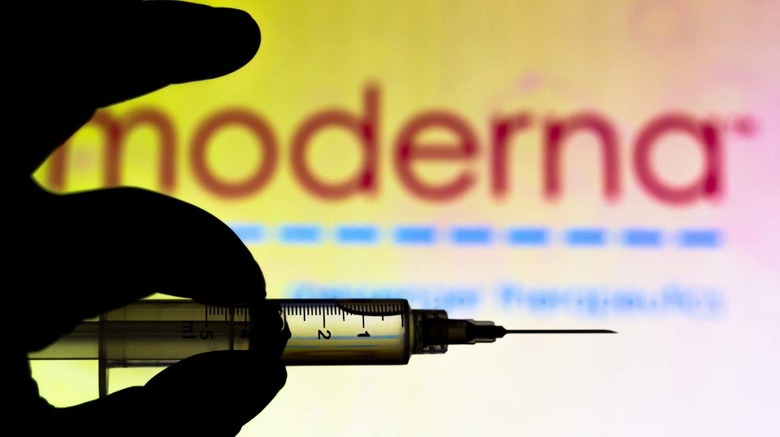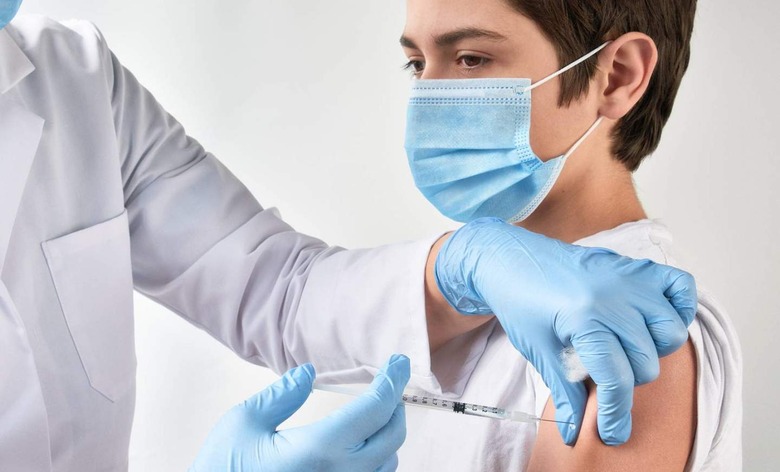FDA And CDC Green Light Pfizer COVID-19 Booster For Older Teenagers
Teenagers ages 16 and 17 in the United States are now eligible for the Pfizer COVID-19 booster shot, the US FDA and CDC have announced. The FDA revealed its Emergency Use Authorization (EUA) expansion on December 9, noting that eligible teenagers must have received the primary vaccine doses at least six months prior to getting the booster dose.
Booster eligibility expands
The FDA authorized Pfizer and Moderna COVID-19 booster shots for adults ages 18 and older last month. Under that booster eligibility expansion, anyone in the US can get a booster (assuming they're not allergic or advised otherwise by a doctor), whereas previously the authorization was limited to only certain adults at high risk of severe disease outcomes.

Today's announcement marks the latest COVID-19 booster shot authorization expansion, adding teenagers ages 16 and 17 to the list of people who are eligible for the shot (via FDA). The expansion only covers Pfizer-BioNTech's vaccine, however, and teenagers must first have received the primary vaccine doses at least half a year before they can get a booster shot.
The CDC endorsed the Pfizer booster age adjustment only hours after the FDA announced its decision. With the green light from both agencies, older teenagers can get a booster shot to help protect against infection amid another growing wave of cases — including, this time around, a new threat from the omicron variant.
The FDA says it expanded its booster authorization to cover this additional age group based on data about the vaccine, evidence supporting its efficacy, and a benefits-to-risk analysis. FDA Center for Biologics Evaluation and Research director Peter Marks, MD, Ph.D., explained, "The Pfizer-BioNTech COVID-19 Vaccine has been available to individuals 16 years of age and older for nearly a year, and its benefits have been shown to clearly outweigh potential risks."
Mix-and-match vaccines
The FDA has only authorized Pfizer-BioNTech's COVID-19 vaccine for use with older teens and the agency says recipients ages 16 and 17 should only be given the Pfizer booster shot. Adults, however, have more options, including the Moderna and Johnson & Johnson COVID-19 vaccine options. As part of an expansion earlier this year, the FDA greenlit a mix-and-match approach to booster shots.
When it comes to adults, it is possible to get a booster shot from a vaccine product different from the vaccine used for the primary vaccine series. So, for example, an adult who received the two-dose Moderna mRNA COVID-19 vaccines initially has the option of getting the Pfizer COVID-19 booster dose, assuming enough time has passed between the two for eligibility.
What about younger kids?
Questions remain about whether younger teens and kids will get eligibility for the COVID-19 booster shot. In late October, the FDA authorized Pfizer's vaccine for the 5-to-11 age group; in this case, two doses at 10 micrograms each are given three weeks apart, a lower dose than the 30 micrograms given to recipients ages 12 and older.
However, booster shots are only available for individuals ages 16 and older. The government health agencies haven't yet stated when booster shots may be available to younger teens and kids or whether they're likely to get authorization for an extra shot. Though experts are operating with far more data than was available in the earlier days of the pandemic, there's still a lack of evidence whether younger kids will need an extra dose for continued protection.
Kids ages 12 through 15 were only able to get the COVID-19 vaccine starting in May, which means the data available on potential immunity decreases over time is minimal. Beyond that, kids under the age of 12 have only been authorized for vaccination for around six weeks, making it too soon to determine whether a booster will be needed.
UH Rainbow Babies and Children's Hospital director of pediatric infection control Dr. Claudia Hoyen recently discussed this with CNN, explaining that kids may experience longer-lasting immunity from the initial vaccines compared to adults. If this turns out to be the case, young kids may not need a booster — or, if they do, the schedule in which they are administered may be different than the ones used with adults.


